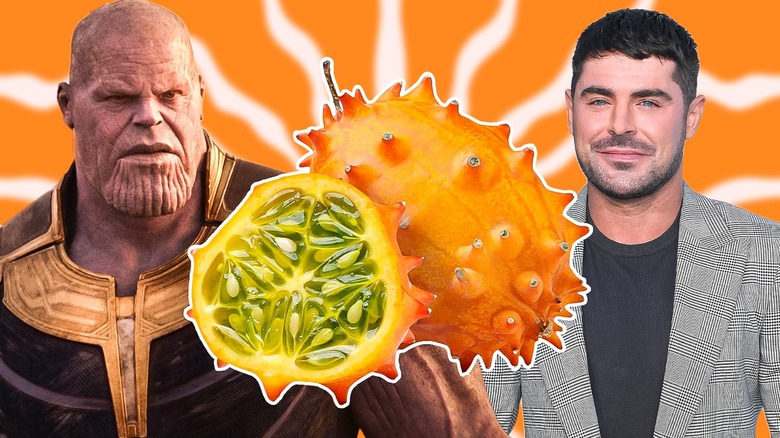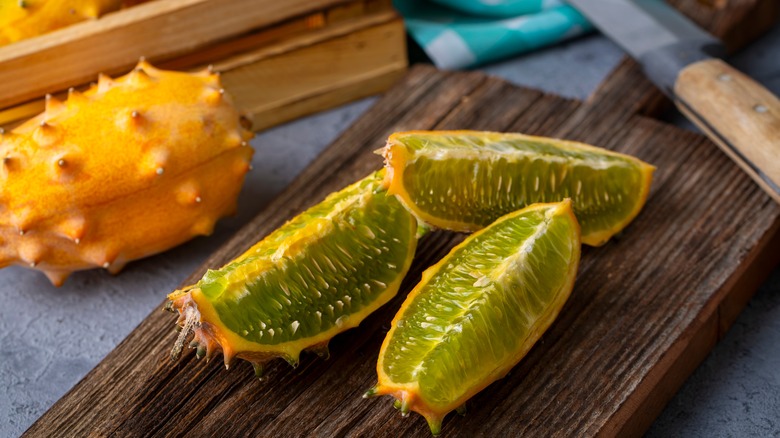Kiwano Melons: From Marvel's Thanos To Zac Efron's Rom-Com
Zac Efron is starting to collect connections to the Marvel Cinematic Universe (MCU) like Thanos collected Infinity Stones in the "Avengers" movies. Already only two degrees of separation away from the MCU thanks to his 2017 appearance in "The Greatest Showman" alongside Zendaya (who portrays Michelle "MJ" Jones in the MCU "Spider-Man" films), Efron has now added another link to the cinematic universe with the release of his project, "A Family Affair" — though probably not in the way you might think.
At the end of the Netflix film – which also stars Nicole Kidman, Kathy Bates, and Joey King — Kidman's character Brooke is sent to the grocery store to pick up a kiwano "horned melon" for her mother, Leila (Bates), who claims that they help prevent dementia. Meanwhile, Chris (portrayed by Efron) is lured to the same store by Zara (King), where he bumps into Brooke as she's checking out the spiky fruit in the produce section.
Don't worry, we won't spoil any more of the rom-com's final moments, but we will explain how the fruit gives Efron yet another connection to the Marvel world. As keen-eyed MCU fans may recall, kiwano melons are widely believed to be the real-world fruit that Thanos was growing in his garden near the start of "Avengers: Endgame." However, we highly doubt the ones Kidman and Efron's characters reunite over were imported from Thanos' extraterrestrial farm.
Can kiwano melons really help prevent dementia?
In reality, kiwano melons are native to central and southern Africa. However, given its spiky, bright-orange exterior and gelatinous green flesh, it's no wonder that the fruit — sometimes referred to as a horned melon or African horned cucumber — was pegged to star as the fictitious space crop that Thanos grew in "Avengers: Endgame" (fun fact ... Kiwano melons have also cameoed in the "Star Wars" and "Star Trek" franchises). Still, it wasn't the kiwano's galactic appearance that landed it a role in "A Family Affair."
The unusual tropical fruit is rich in nutrients and antioxidants, including Vitamin E, which a 2017 study published in the International Journal of Molecular Sciences suggests can help slow the progression of Alzheimer's and dementia, while potentially improving cognitive health. Research on the topic has been inconclusive, though, and there's no guarantee that kiwanos are a surefire way to prevent the aforementioned conditions, but there's at least some merit to Leila's reasoning for requesting the fruit in the Netflix film.
As for how to eat a kiwano, most people pass on the edible rind and simply slice the melon open and eat the pulpy interior. Unfortunately, the fruit isn't exceptionally tasty; one Reddit user likened it to "eating a cucumber except a bit more sour and it's all seeds." Therefore, you may want to try Andrew Zimmern's preferred method of topping it with salt and honey.

